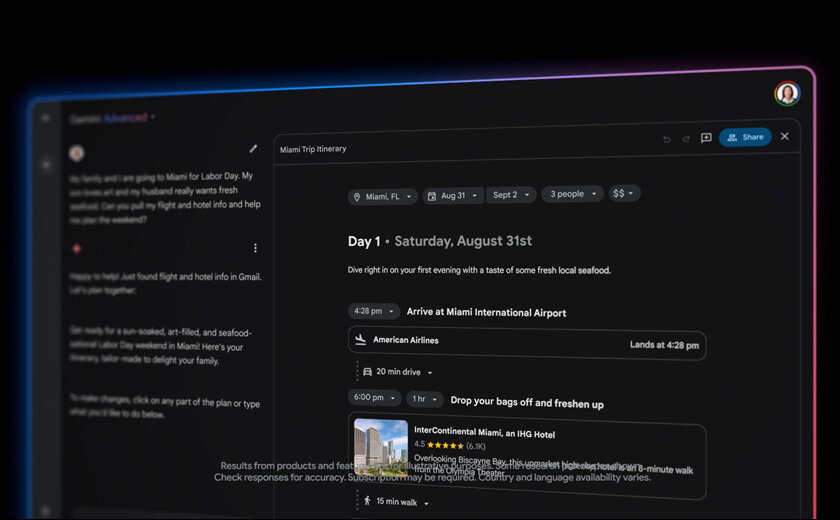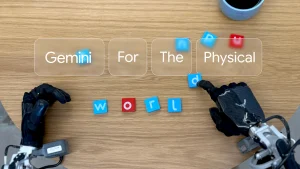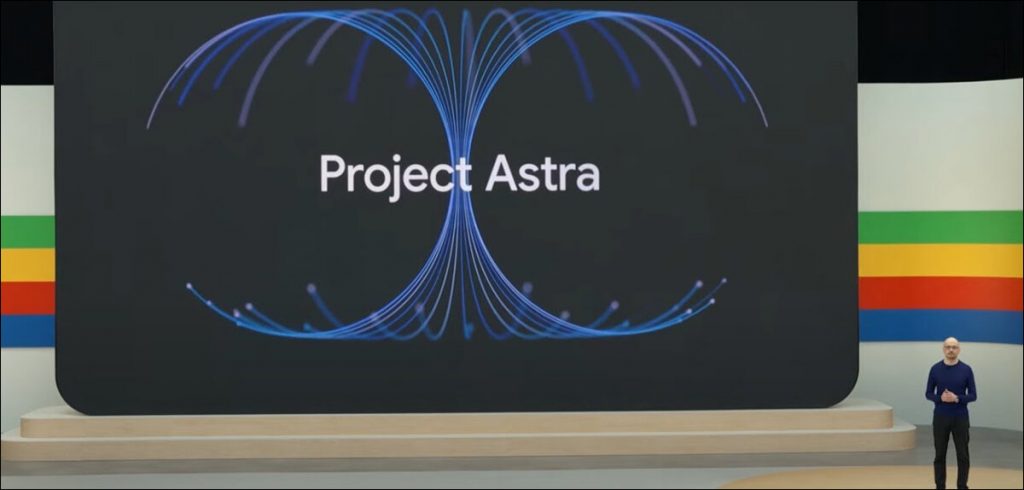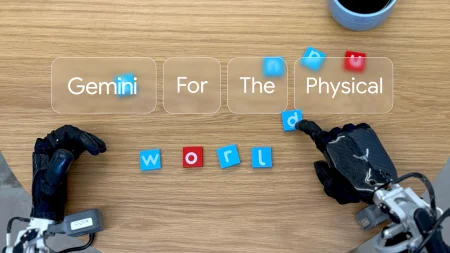The idea of Project Astra is to combine the current visual world and your verbal commands so that you can use the system easily and conveniently.
Have you ever been late when you encountered yourself in a desperate search for your keys and felt that your brain could not store everything you needed to remember? We’ve all been there. However, can you imagine a case in which the technology is developed to provide understanding and practical help to address the predicaments?
Imagine you are asking your AI assistant about the missing keys, instead of just responding to your questions it goes beyond and remembers where you last left your keys, based on what it saw earlier through your phone’s camera. Like it’s out of a Blade Runner movie – saying it in such a way.
Interestingly, Google‘s Project Astra is the one that will be driving this very future. This convention-breaking AI assistant lavishes upon us a glimpse of a future where AI becomes an indispensable part of our lives. Astra is a multimodal AI that can interact in any data modality, such as text, speech, images, and even videos. It makes you talk with your device as you would talk with another person or friend, thus everything goes faster which even foretells your thoughts.
Versatile Breakthrough
The major asset of Project Astra is the capability of the system to process multimodal inputs – this concept is also known as “multimodal processing. ” Different than traditional AI assistants that only react to your voice commands, Astra can take advantage of your phone’s camera and microphone thus providing a more thorough comprehension of the context around you. As Astra is equipped with the “visual memory” feature, it can identify context and respond in a more well-thought-out and accurate manner to the users. So there will be no more unclear conversations and no more confusing instructions. Therefore, the idea of Project Astra is to combine the current visual world and your verbal commands so that you can use the system easily and conveniently.
Beyond “Hey Google…”
Project Astra exceeds even the boundaries of active dialogues and well-posed outside-the-box thinking. For instance, you could outline a simple table on a plain sheet of paper and show it to Astra in real time, where it would be able to recognise your drawing and understand what you want and might also come up with names for designs or even propose some similar existing styles depending on the visual accommodation. As Sundar Pichai, the CEO of Google states, “Astra’s ability to understand and interact with the physical world through a camera lens represents a significant advancement in AI technology. It makes us closer to a future where the digital and the real worlds are smoothly connected.”
This interactive nature makes using AI assistants more engaging and feels like a natural conversation with a helpful partner resulting in creativity and innovation. At the Google I/O event demonstration, Astra showcased several interactive modes like: “Storyteller,” which uses only visible items for the plotline, and “Pictionary,” in which Astra precisely recognises user-drawn objects. Through this reciprocal approach, AI-empowered assistants will be able to develop an interaction that is more interesting than the typical question-and-answer format of traditional AI bots.
Some real-time examples of Project Astra, that could revolutionise the way we use technology:
- DIY Dilemma Solved: Frustrated with the impenetrable set of furniture instructions? Astra scans the image, identifies each part, and gives suggestions for doing the assembly without frustration like recommending videos or alternative methods.
- Fashion Guru in Your Pocket: Don’t know what to wear? Astra scans your closet, shows you chic combinations based on trends and weather, and suggests the best match of accessories for an event.
- Breaking Language Barriers: Going abroad? Point your phone with Astra at the street signs or in the restaurants for an instant interaction in the language of the locals.
- Mobile Fitness Coach: Exercising while using several applications is challenging. Astra can count repetitions, assess your form, and analyse your motions using its visual recognition technology. Astra takes up the role of a personal trainer for you, just the way you need it and helps ensure that you reach your fitness objectives.
- Seeing Eye for the Visually Impaired: Buying groceries is made simple. Astra lists everything about the products on the shelf, including their names, brands, and expiration dates. It can even facilitate more independence by guiding shoppers through supermarkets to locate particular ingredients.

A Peek into Tomorrow
While Project Astra remains in the early stages of R&D, Google is gearing up to infuse some of its technologies into Gemini by the end of the year. This demonstrates how AI assistants will soon become part of our everyday lives, providing relevant information and even assisting in decision-making based simply on what we see and engage daily. Like Demis Hassabis, the head of the Google DeepMind division, the company’s AI research branch, sees Project Astra as part of his ambitious dream to build a “universal assistant” to help with anything. Furthermore, the company hinted at the integration of Astra with smart glasses, which may bring back Google Glass and make it more powerful with an AI twist. If these glasses prove as efficient as the demonstration then this could be a very strong competitor to Meta’s Ray-Ban smart glasses.
Challenges on the Horizon
Yes indeed, there are many pros and cons of those kinds of developments. The guarantee of user privacy and the resolution of concerns about information collection will be fundamental for the success of Project Astra. Also, adjusting the functional characteristics to a strong security level will be of the utmost importance. While Astra showed a great response time in the demo, delays may occur when it is implemented in real-world projects. With a conscientious approach to handling these challenges, Project Astra will bring forth the era of responsible and user-friendly AI.
Creating a New Aeon
Despite those challenges, Project Astra is a sort of green flag that precedes the future. It reflects the possibility of AI assistants which can go beyond a simple text chat and become full-fledged companions of people. As the AI models become more multimodal, we can anticipate more complex and more helpful AI assistants coming into existence and vice versa. This is the future of AI assistants, which is fast approaching, and Astra is just an instance where we are getting a glimpse into what is still to come.
In case you missed:
- Is this the Future of Mobile AI? Apple Introduces ReaLM
- Unleashing the Power of Voice: Exploring Meta Voicebox AI
- What’s new in Azure app service at Build 2024: Key announcements and features
- Alteryx’s New AI Assistant: Streamlining Analytical Workflows
- Kickstarting your MLOps journey in 2024: Essential practices and strategies
- Hybrid and Multi-Cloud technologies in 2024: Developments, challenges, and Innovations
- Deciphering RHEL AI: An Open Source Approach to Artificial Intelligence
- Identifying the Best Development Tunnelling Tool: Ngrok vs. Localtunnel
- Forecasting the Future: Generative AI in Software Testing for 2024
- Decoding BlackBox AI: Your Creative Coding Partner









